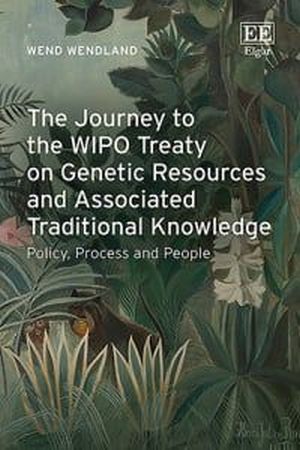
This book recounts the colourful and eventful journey to the landmark WIPO Treaty on Intellectual Property, Genetic Resources and Associated Traditional Knowledge, from the proposal for a new patent disclosure requirement in 1999 to the adoption of the Treaty 25 years later. Offering a first-person account from his unique position as having been a Director at WIPO and responsible for the negotiations for many years, Wend Wendland analyzes the Treaty and its negotiating history, lifting the curtain on how, against the odds, its adoption by consensus was achieved.
The book highlights the key individuals involved in the process and provides detailed insight into the negotiations methodology. It underlines the importance of the changes within the patent system made by the Treaty to combat biopiracy and reflects on the historic influence of developing countries and Indigenous Peoples advocating for decades for these protections for their traditional knowledge and genetic resources, and how this led eventually to the Treaty’s adoption. Finally, the book looks ahead to consider the expectations surrounding the coming into force of the Treaty and assesses if and how it will achieve its objectives.
Patent office officials, IP negotiators and policymakers, IP counsel, and governmental relations executives will benefit from this book’s crucial insights. It is also a unique resource for Indigenous Peoples organizations, as well as the staff of intergovernmental organizations and scholars and students of multilateral negotiations, intellectual property law, environmental law and public international law.